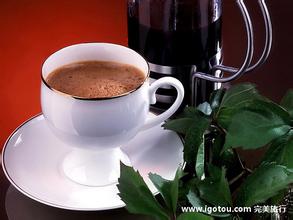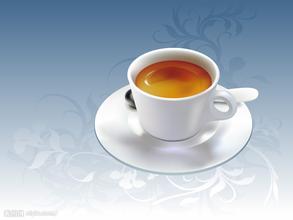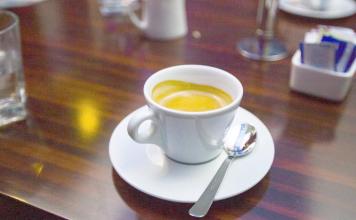Introduction of coffee flavor and taste characteristics of Esmeralda Manor in Panama with unique forest climate
Species of Geisha were discovered in the Rose Summer Forest of Ethiopia in 1931 and sent to the Coffee Research Institute in Kenya, introduced to Uganda and Tanzania in 1936, introduced to Costa Rica in 1953, and Panama was introduced in the 1970s by Mr. Francis Coselazin of the Tonba Seven Farm Garden from CATIE in Costa Rica and began to grow Rose Summer Coffee.
Geisha, sweeping the coffee world with the power of a hurricane, the coffee revolution is so fierce that the blue mountains of Jamaica and Kona of Hawaii, which have long occupied the throne of the coffee kingdom, have to stay away. This wild species, which originated in Ethiopia, is now widely used in major coffee producing areas after numerous battles, and its best spokesman is the "LaEsmeralda" estate from Panama.
History of Esmeralda Farm: founded by Hans Elliot, a Swede, in 1924, Esmeralda Farm was not a coffee grower but a ranch. Forty years later, in 1964, Mr. Danielupidason's grandfather, Ruth Lover. Mr. Bidasson bought Esmeralda Farm in order to have an old home after retirement. His grandfather, Mr. Ruth Lover Bidasson, was born in Sweden and was president of the Bank of America and director of United Nations development. His son, Mr. Brais Bidarsson, moved to Panama from California in 1973 and inherited to run his father's farm. In 1987, most of the farms were changed to grow coffee. In 1994, he invested in the machinery and equipment of refined coffee in order to create a brand. Mr. Brais Bidarson and his wife Susan also raised three children, Elligu (born in Philadelphia in 1966). Rachel Lou (born in Sweden in 1967) and Danielu (born in Panama in 1974).
In 1996, Blaise and Rachel visited a farm for sale in the Haramijun area of the Bocketi Valley, and was attracted by the beautiful farm and immediately bought it. This is Esmeralda. Daniel Lou, the third son of Haramiqiong Farm. It is in this farm that Mr. Bidasson has grown what has caught the attention of the coffee world-Geisha Coffee Finca Nuguo Manor has become more and more outstanding on the world coffee stage, except for some coffee that won the senior competition, which is the source of beans used in the 2016 American barista champion Lemuel Butler competition. Finca Nuguo Manor is located in Chiriqu í in western Panama, close to the Costa Rican border.
"it's raining hard here, and even in the dry season, Rain Water continues to be here." Jos é Gallardo, the owner of Finca Nuguo, said, "I think these trees will love the rain, which means the nutrition will be good all year round." Water brings all the nutrients of the year to the root layer of the tree. "
In addition to the official rainy season, Finca Nuguo Manor also experienced an unusual rainfall (as did La Mula), which Panamanians call "bajareque". The rain was coming so fast from the Atlantic that I even saw clouds like waves covering a corner of the hillside. Standing on the top of the mountain, the second before it was covered by strong sunlight, you could see the clouds sliding slowly between the two slopes, like a blanket. Before you realize what happened, the next second you are already in the bajareque. The cold Rain Water is very small, just like a silver needle, the temperature plummets and almost tingles your skin. Bajareque has caused a lot of trouble for local farmers, but Finca Nuguo Manor's Jos é Gallardo told us: "in a tropical rainforest, trees love the rainy season. The trees in the dry areas are very similar, the leaves are scarce and the ground is dry. But in Nuguo, if you go into the jungle, you will find leaves everywhere. Everything is soft. "
Boot commented on this phenomenon: "this is a combination of several factors: unique forest climate, a lot of rainfall, cloud-shrouded forests." Because of this unique climate, we get a lot of planting materials, which create a very complex organic matter in the soil. Constant moisture helps these materials degrade, while hyperactive microbial bacteria create a special metabolism to help trees get nutrients. Higher elevations and cold weather conditions mean more complex oils in coffee. We can't measure this accurately, but we can taste it, and I've consulted botanists that the unique color of coffee, such as the unique reddish hue observed at Finca Nuguo Manor, is also related to these complex oils.

Important Notice :
前街咖啡 FrontStreet Coffee has moved to new addredd:
FrontStreet Coffee Address: 315,Donghua East Road,GuangZhou
Tel:020 38364473
- Prev

An introduction to the characteristics of coffee flavor and taste in the delicious Chateau Saint Roman, Colombia
After the founding of the United States, there was a dispute over the location of the capital. The North wants to locate its capital in New York. And the south wants the capital to be located in the south. In the end, the North and the South of the United States made a concession for the flag of Washington, D.C., to build a new city as the capital of the United States in the south not far from the north. The geographical location is provided by James Madiso (
- Next

Introduction of Fine Coffee beans in Coffee Flavor and Taste area of Lazimus Manor, Colombia
The first part is the triangle of the background, which symbolizes the Andes and implies that most of the Arabica coffee growing areas in Colombian coffee belong to high-altitude mountains. It is well known that the main coffee producing areas in Colombia are located in three Sichuan-lined mountains, all of which are part of the Andes. According to the geographical environment and climate, different areas of coffee
Related
- Does Rose Summer choose Blue, Green or Red? Detailed explanation of Rose Summer Coffee plots and Classification in Panamanian Jade Manor
- What is the difference between the origin, producing area, processing plant, cooperative and manor of coffee beans?
- How fine does the espresso powder fit? how to grind the espresso?
- Sca coffee roasting degree color card coffee roasting degree 8 roasting color values what do you mean?
- The practice of lattes: how to make lattes at home
- Introduction to Indonesian Fine Coffee beans-- Java Coffee producing area of Indonesian Arabica Coffee
- How much will the flavor of light and medium roasted rose summer be expressed? What baking level is rose summer suitable for?
- Introduction to the characteristics of washing, sun-drying or wet-planing coffee commonly used in Mantenin, Indonesia
- Price characteristics of Arabica Coffee Bean Starbucks introduction to Manning Coffee Bean Taste producing area Variety Manor
- What is the authentic Yega flavor? What are the flavor characteristics of the really excellent Yejasuffi coffee beans?

